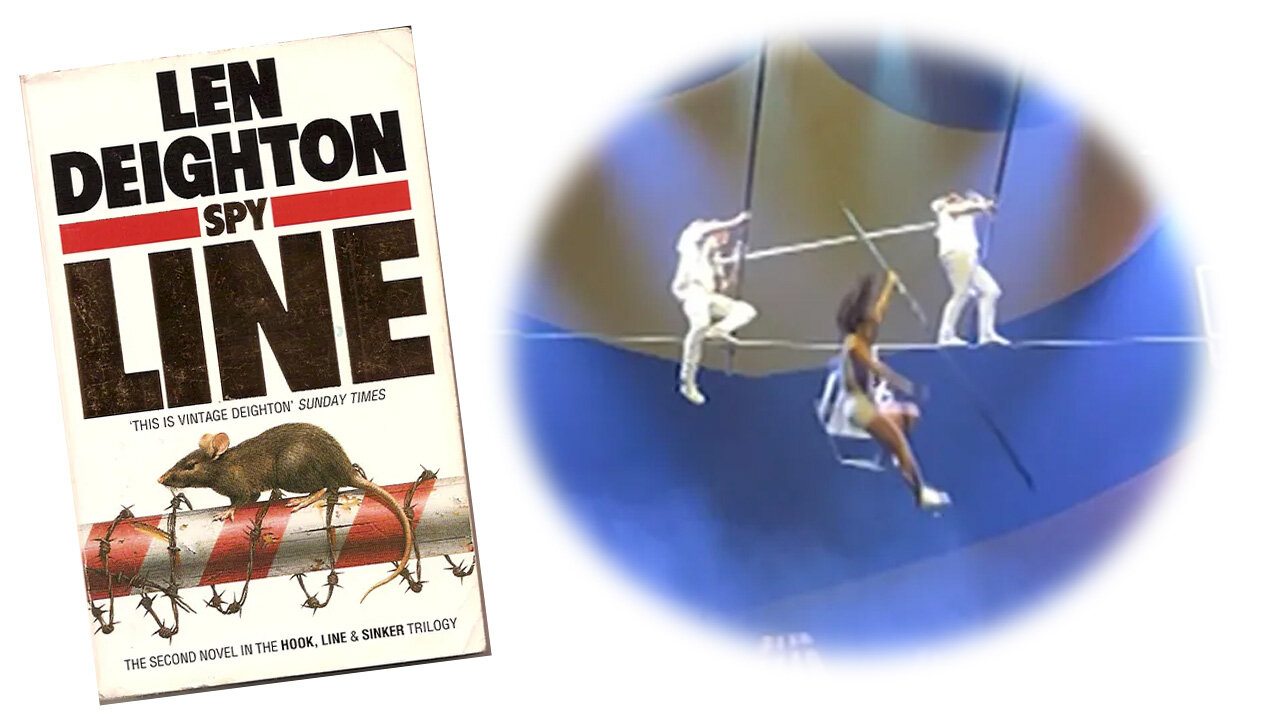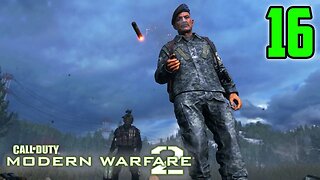Premium Only Content

'Spy Line' (1989) by Len Deighton
Len Deighton’s, 'Spy Line' (1989), the penultimate novel in the Bernard Samson trilogy-of-trilogies, showcases the author’s mastery of understated espionage fiction. Following 'Spy Hook', this second installment in the final "Spy" trilogy continues to explore the moral, psychological, and professional disintegration of Samson, a British intelligence officer ensnared in webs of loyalty, betrayal, and institutional duplicity.
Where John le Carré immerses readers in moral grey zones and bureaucratic malaise, and Ian Fleming leans toward the romanticized and action-oriented, Deighton’s middle ground is often colder: cynical, but pulsing with quiet emotional turmoil. 'Spy Line' is not just about spies—it’s about the emotional wreckage they leave behind and the subtle art of surviving a profession built on lies.
The story follows Bernard Samson as he remains a fugitive, estranged from London Central after the explosive revelations of Spy Hook. His wife Fiona—herself an agent who defected to East Germany in earlier books—is now revealed to be a deep-cover double agent. The book picks up the scattered pieces of this personal betrayal and professional catastrophe, and begins the painstaking process of examining what trust means when it has been so thoroughly burned.
Deighton’s prose is efficient, laconic, and filled with dialogue that does more to obscure than reveal. This is deliberate. In 'Spy Line', the reader—like Samson—has to sift through half-truths, conflicting motivations, and evasive silences. There is no omniscient narrator offering comfort or clarity; Samson’s first-person perspective is the lens, and that lens is cracked. He is both acutely aware and dangerously naïve, a man trained in duplicity who struggles to apply it in the realm of love and loyalty.
A notable strength of the novel is its exploration of professional loneliness. Samson is not the lone wolf of the thriller genre; rather, he is someone pushed into solitude by institutional rot. His conversations with old colleagues and former friends—particularly Dicky Cruyer and Bret Rensselaer—are loaded with implied threat, bureaucratic maneuvering, and personal vendetta. The chessboard is international, but the wounds are intimate.
Plot-wise, 'Spy Line' is more of a slow unraveling than a sprint. Deighton eschews explosions for interrogations, chases for chess matches of will and suspicion. There are significant revelations in this book—notably about Fiona’s mission, about the higher echelons of British intelligence—but they arrive with a whisper rather than a bang. Deighton trusts the reader to catch the signal through the noise, a risky move that pays off for those patient enough to invest.
The emotional tension is perhaps most vividly captured in the interplay between Bernard and Fiona. Reunited, they are no longer just husband and wife, but two professionals trying to reconstruct trust after strategic betrayal. Their conversations are as guarded as interrogations, yet the undercurrent of lingering affection complicates every scene they share. Deighton never lets sentimentality dilute the emotional realism. Love, in this world, is always conditional—always transactional.
By the time 'Spy Line' concludes, the reader has not found closure so much as the faint glimmer of survival. Samson, wearied and betrayed but not yet broken, readies himself for the final reckoning that will arrive in 'Spy Sinker'. The novel does not pretend that such reckoning will be just. In the world Deighton constructs, justice is rarely the point—only survival, clarity, and a momentary edge in the game.
In sum, 'Spy Line' is a masterclass in Cold War realism and literary restraint. It stands as one of Deighton’s most psychologically acute works, a meditation on trust and the cost of loyalty. For readers of the Samson series, it is essential. For new readers, it demands patience—but rewards it with a world that feels authentically, chillingly real.
-
 1:03:13
1:03:13
The Elizabeth Farah Show
1 hour agoDr. Peter McCullough Reveals the Pattern Behind COVID, Vaccines, and Medical Collapse
3.07K -
 LIVE
LIVE
The Mike Schwartz Show
13 hours agoTHE MIKE SCHWARTZ SHOW with DR. MICHAEL J SCHWARTZ 02-12-2026
635 watching -
 1:01:10
1:01:10
BonginoReport
3 hours agoThe Left Admitted They Want Illegals To Vote? (w/ Shawn Farash) | Episode 224 - 02/12/26
100K84 -
 LIVE
LIVE
LFA TV
13 hours agoLIVE & BREAKING NEWS! | THURSDAY 2/12/26
2,746 watching -
 1:06:52
1:06:52
Game On!
21 hours ago $5.06 earnedMASSIVE Winter Olympics Cheating Scandal EXPOSED!
25K7 -
 17:37
17:37
The Gun Collective
16 hours agoALL of the NEW GUNS this week! (it's a lot!)
41.1K8 -
 1:31:22
1:31:22
American Thought Leaders
17 hours agoHow the U.S. Bankrolled China’s Top Researchers | Dr. Jay Bhattacharya
46.5K7 -
 23:03
23:03
Jasmin Laine
16 hours ago'He's UGLY!' Liberal Strategist LAUGHS At Conservative Cancer Survivor—CBC Slips on Trump
34.5K24 -
 45:04
45:04
Degenerate Plays
23 hours ago $0.92 earnedProbably Our Most Controversial Discussion Ever - Call of Duty: Modern Warfare 2 (2009) : Part 16
26K1 -
 2:05:10
2:05:10
BEK TV
1 day agoTrent Loos in the Morning - 2/12/2026
26.1K